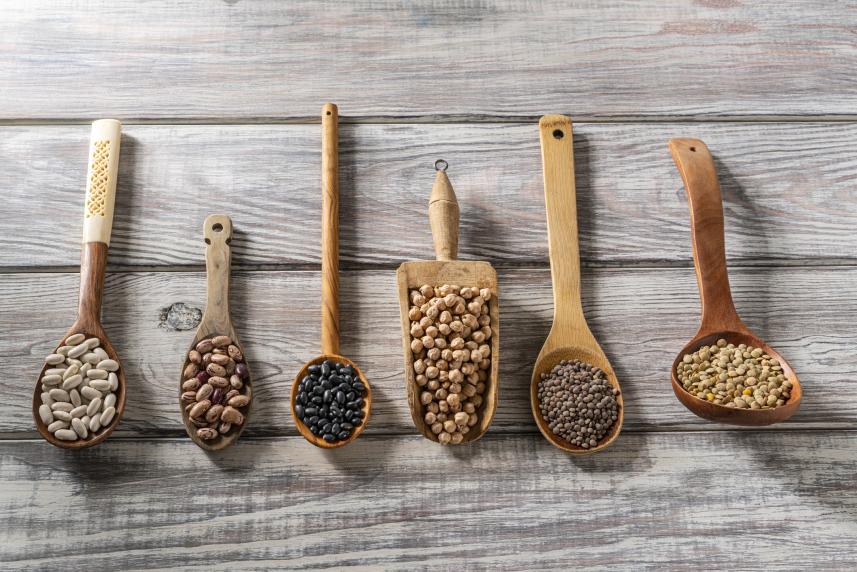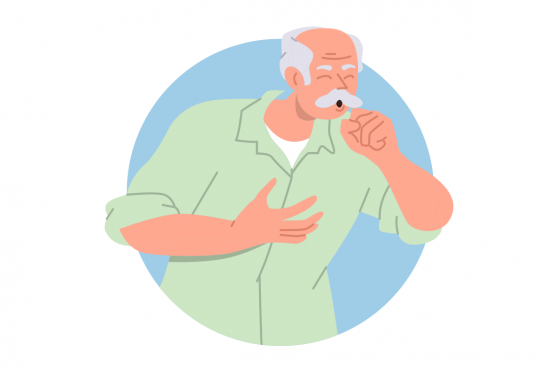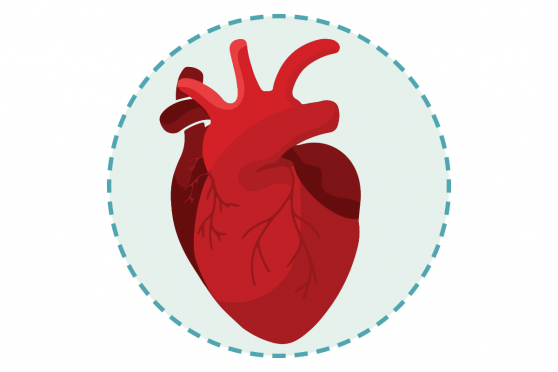50 Perfect Foods for Adults Over 50
The life experience that comes with age makes you wiser. But to stay strong throughout the years, you need to fuel your body with the vitamins and minerals that build your bones, muscles, and brain. Start the year on a healthy note with these dietitian-approved foods in seven key categories.

First stop: fresh produce
1. Apples Apples are full of soluble fiber, which can help lower cholesterol. 
2. Asparagus These spears are a solid source of vitamin K, a critical nutrient for preventing dangerous blood clots.
3. Avocados “It’s important for older adults to get heart-healthy fat like avocados,” says Simone Wilson, R.D., owner of Simone Therese Nutrition.
4. Bananas Packed with potassium, these control blood pressure by helping the body get rid of sodium.
5. Beets Beets are brimming with nitrates, which dilate blood vessels to improve blood flow.
6. Blueberries “Blueberries are high in antioxidants that fight free radical damage, which increases your risk of chronic diseases,” says Wilson.
7. Broccoli Research suggests that a compound in broccoli can help slow the cartilage destruction that comes with osteoarthritis.
8. Brussels sprouts Research suggests they can help fight cancer. Your risk of cancer increases with age.
9. Carrots The vitamin A found in carrots may help improve vision.
10. Cauliflower rice It’s an easy way to add an extra serving of vegetables, which can protect against heart disease.
11. Garlic A study of mice found that allyl sulfide, a compound in garlic, fights changes in gut bacteria that contribute to brain decline.
12. Ginger root “Ginger root blocks inflammation. There’s research that shows ginger can help with arthritis symptoms,” says Wilson.
13. Kale Harvard University found a link between carotenoid antioxidants (found in kale) in your blood and feeling more positive.
14. Mushrooms Used as medicine for thousands of years, mushrooms have antioxidant, anti-inflammatory, and anti-cancer properties.
15. Oranges This citrus fruit provides both vitamin C and calcium, both of which are major factors in preventing fractures from falls.
16. Raspberries “Raspberries are a high-fiber fruit, with 8 grams per cup. Women should aim for 25 grams a day, while men need 38 grams,” says Wilson.
17. Red cabbage The bright color signals antioxidants, which protect against heart disease and cancer.
18. Tomatoes Lycopene, found in tomatoes, can decrease stroke risk.
19. Spinach Spinach is a rich source of vitamin K, which can help keep bones strong.
20. Sweet potatoes Carbohydrates often get a bad rap, but unfairly so. With ample fiber and plenty of vitamins, sweet potatoes are one of the best choices.
Lean on legumes
21. Black beans Black beans owe their inky color to rich stores of antioxidants, which guard your cells against heart disease and cancer. And like all beans, they’re also full of protein and fiber.
22. Pinto beans These are packed with fiber, aiding digestion and making you feel fuller longer.
23. Chickpeas Beans and legumes are nutritional powerhouses, packing in two of the things you need most: protein and fiber. Cans of chickpeas are a convenient, versatile staple you shouldn’t be without.
24. Lentils “If I had to name one superfood, it would be lentils,” says Wilson. “I try to eat them every day.” Lentils are packed with protein, fiber, iron, and antioxidants. Because of that, scientists have noted that they can help fight chronic diseases and lower blood pressure.
Go for grains
25. Barley Research shows that barley can improve insulin sensitivity.
26. Brown rice In addition to having gut-friendly fiber, brown rice contains phenols and flavonoids that help reduce cell damage and slow down premature aging.
27. Oats “Oatmeal is very high in beta glucan, a fiber that lowers bad cholesterol and stabilizes your blood sugar levels,” says Wilson.
28. Quinoa Quinoa is a tiny seed that acts like a whole grain. It’s a rich source of fiber and protein. Use it as an alternative to rice.
29. Whole-grain bread Like cereal, whole-grain bread is often fortified with important nutrients. Just read the label. You want something that lists “whole wheat” as the first ingredient and doesn’t contain any sweeteners.
30. Chicken breast “For my older clients, preventing muscle loss is priority number one,” says Wilson, adding that they need about 0.8 grams of protein per kilogram (2.2 pounds) of body weight. For a 150-pound woman, that equals 55 grams per day, while a 180-pound man should aim for
65 grams daily. Chicken breast, which is low in saturated fat, is a convenient way to get it.
31. Cod The American Heart Association recommends reaching for two servings of fish, such as cod, per week. Choose frozen varieties for a lower cost.
32. Eggs Vitamin D is important for bone health, and eggs have it — but only in the yolks. “Some older folks still think they should only eat the white, but really you need the whole egg,” says Emily Craft, a registered dietitian in Philadelphia.
33. Salmon “Eating salmon is a great way of getting those omega-3s and maintaining brain health,” says Wilson. Choose fresh, frozen, or canned versions.
34. Sardines Like salmon, sardines are rich in those brain-boosting omega-3s, but they’re also rich in calcium. It’s a win-win.
35. Tofu An excellent source of plant-based protein is tofu, which also happens to have tons of calcium. Plus, you’re likely to digest it fairly easily, says Wilson.
Smart snack finds
36. Almonds An ounce has 6 grams of protein, 3.5 grams of fiber, and 50 percent of the Recommended Daily Intake (RDI) of vitamin E.
37. Brazil nuts These are packed with selenium, which boosts thyroid health.
38. Fortified breakfast cereal “The stomach lining of older adults isn’t as good at absorbing nutrients, like B12,” says Craft. She recommends fortified whole-grain breakfast cereal to help ensure you get what you need.
39. Low-fat Greek yogurt
Healthy bones are an important part of healthy aging, so calcium is important for older adults. With low-fat Greek yogurt, you get plenty of protein as well, which is vital to maintaining muscle mass.
40. Popcorn It’s hard to beat popcorn as a snack food. It’s a minimally processed whole grain. Just skip the butter and drizzle it with olive oil instead.
41. Prunes “Prunes contain sorbitol, which is a natural sugar alcohol that has a laxative effect. Constipation is a common issue for older adults and prunes can really help,” says Wilson.
42. Sunflower seeds They’re rich in vitamin E, which may help with memory problems and even mild Alzheimer’s disease symptoms.
43. Walnuts The only nut that’s a rich source of alpha-linolenic acid, walnuts can help protect your heart health.
Guilt-free condiments
44. Olive oil This staple of Mediterranean cooking is the king of healthy fats. When you swap it for a saturated fat-heavy food (like butter), olive oil can reduce your cholesterol and the risk of heart disease.
45. Tahini “Calcium intake needs to increase as we age because our ability to absorb it declines,” says Wilson. Tahini, a calcium-rich sesame paste found in hummus, can add tang to meals and snacks.
46. Turmeric Curcumin, found in turmeric, is a powerful antioxidant with anti-inflammatory properties. “Pair it with black pepper,” suggests Wilson, since it helps you better absorb the curcumin.
47. Sauerkraut Homemade or refrigerated old-fashioned sauerkraut (not from the can) is a tasty way to add probiotics to your gut.
Thirst quenchers
48. Coffee Research shows that consuming coffee can help prevent dementia and Alzheimer’s disease.
49. Green tea Green tea consumption is associated with better basic functioning and lower risk of injury as you age.
And don’t forget...
50. Water “Older adults often don’t have a strong thirst cue,” says Craft, noting how important it is to treat water like any other food or nutrient on this list. Set a reminder to take sips throughout the day — even when you don’t feel thirsty.



